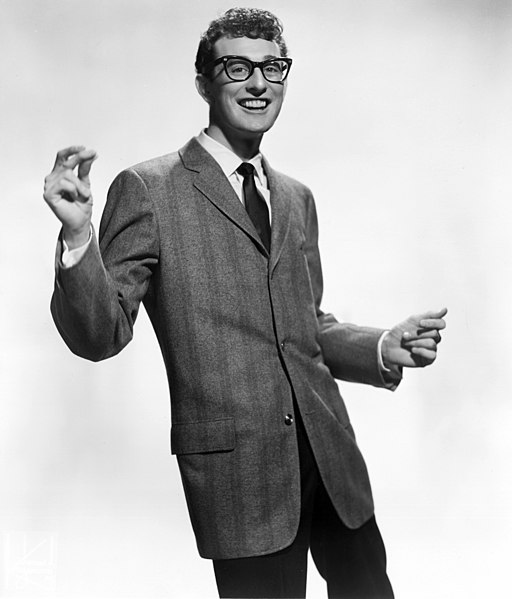 |
| Buddy Holly by Brunswick Records |
Early Years: Buddy Holly was born in Lubbock, Texas in 1936. He was raised in a musical family and learned to play guitar at an early age. He drew inspiration from a wide range of musical styles, including country, blues, and rockabilly.
Rise to Fame: In 1957, Buddy Holly and The Crickets recorded their first hit, "That'll Be the Day," which became a chart-topping success and helped to establish them as rising stars in the music industry. They went on to record a series of hits, including "Peggy Sue," "Not Fade Away," and "Oh, Boy!," which showcased their unique sound and style.
Legacy: Buddy Holly's influence on rock and roll and popular music cannot be overstated. He helped to establish the genre as a mainstream force and paved the way for future generations of artists. His innovative guitar playing and songwriting, as well as his charismatic stage presence, continue to inspire and influence musicians around the world.
Buddy Holly and The Crickets will always be remembered as pioneers of rock and roll, whose music and style helped to shape the genre and inspire future generations of musicians. Their legacy continues to resonate with audiences today, and their impact on the music industry will be felt for generations to come.
Rise to Fame: In 1957, Buddy Holly and The Crickets recorded their first hit, "That'll Be the Day," which became a chart-topping success and helped to establish them as rising stars in the music industry. They went on to record a series of hits, including "Peggy Sue," "Not Fade Away," and "Oh, Boy!," which showcased their unique sound and style.
Legacy: Buddy Holly's influence on rock and roll and popular music cannot be overstated. He helped to establish the genre as a mainstream force and paved the way for future generations of artists. His innovative guitar playing and songwriting, as well as his charismatic stage presence, continue to inspire and influence musicians around the world.
Buddy Holly and The Crickets will always be remembered as pioneers of rock and roll, whose music and style helped to shape the genre and inspire future generations of musicians. Their legacy continues to resonate with audiences today, and their impact on the music industry will be felt for generations to come.





0 Comments
If you find any mistakes with the lyrics or would like to share some thoughts, Please leave us a comment.